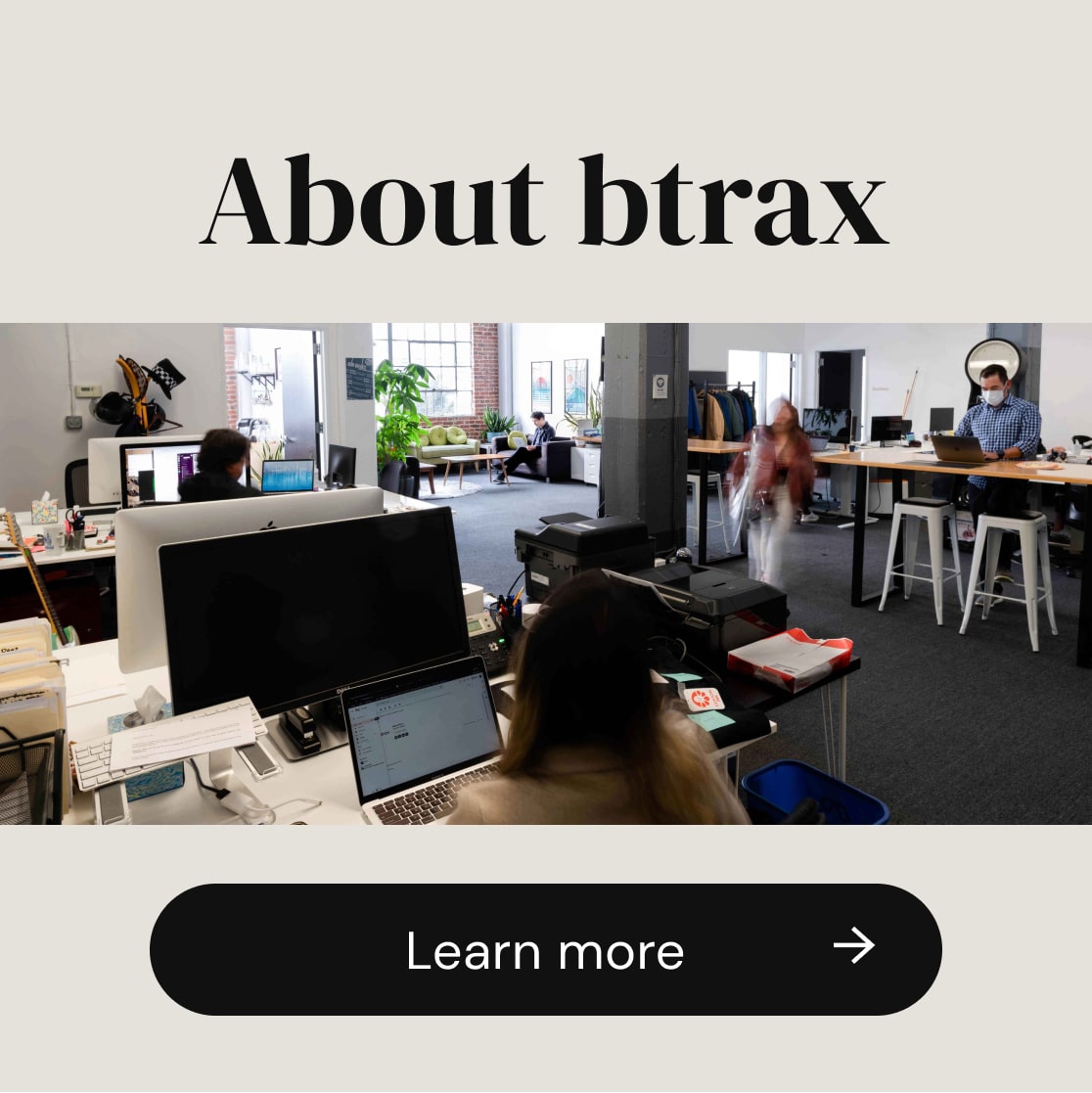
Btrax Design Company > Freshtrax > Becoming an Ent...
Becoming an Entrepreneur — Disadvantages of Silicon Valley
There are a lot of advantages to being in the Silicon Valley when building your startup, but what are some of the disadvantages?
I sat down with four co-founders of successful startups from seed stage to IPO at JapanNight VII to learn about how Silicon Valley helped them to success and where it makes things tougher. This is the second part of my Founders Q&A series (read the first part here).
Founder Profiles
 |
Morten Primdahl CTO & co-founder of Zendesk Zendesk is a software development company providing a cloud-based customer service platform. Morten co-founded Zendesk with Mikkel Svane and Alexander Aghassipour, and has served as the Chief Technology Officer since August 2007. |
 |
Maria Alegre CEO & co-founder of Chartboost Chartboost is the largest revenue platform for mobile games. Prior to Chartboost, Maria was an early employee at mobile game studio Tapulous, where she oversaw product launches and marketing. Maria holds a B.A. in Business from the University of Michigan and the ESADE Business School in Barcelona, Spain. |
 |
Ryan Caldbeck CEO & founder of CircleUp CircleUp is an online private company investment platform. Ryan started CircleUp after almost seven years of investing experience in consumer product and retail-focused private equity at TSG Consumer Partners and Encore Consumer Capital. Ryan has a dual B.A. from Duke and received his MBA from Stanford. |
 |
Doug Simpson CEO & co-founder of Navdy Navdy is a Head-Up Display (HUD) that displays information from your phone and car as a transparent image that appears to float outside of your windshield. Prior to Navdy, Doug founded Hawkeye and SmartRoam, and held senior roles in R&D and sales at Hewlett-Packard. |
Q&A
Tim: How did you get into entrepreneurship? Also, since Maria and Morten are from Spain and Denmark respectively, at what point did you decide to make Silicon Valley your home both personally and for work?
Morten: We knew very early on, even back in Copenhagen in 2007, that if we had the chance to go to the US, we should take it. In the US, there’s a history of succeeding, and part of the experience is that you can travel the beaten path. There’s a high concentration of entrepreneurs here, and if you’re in this environment in San Francisco, you can be inspired by the people around you and seek help you when you’re down.
You don’t have that kind of environment in Denmark. It’s a small country and the mentality is quite the opposite. In Denmark, people think: “Yeah, that’s probably not going to work.” But over here, it’s like: “You should try it.” So we realized that there’s a spirit here that would be good for us. Outside of that, the economy here and the laws are geared for scaling businesses like ours, so we took our chances. We got serious help from an American VC and moved over here.
Maria: I moved here before I started the company. When i moved here I didn’t know what the difference was between the Bay Area, San Francisco and Silicon Valley. I just knew that there was something in the Silicon Valley and I wanted to learn from it. So I bought a plane ticket to come here for 2 months, stayed at a youth hostel and didn’t know anyone or anything. There were a few things that I learned very quickly, and by the end of the first month, I knew I had to come back. Silicon Valley was the place for me.
I feel that when entrepreneurs are starting companies here, they think of the world as their market, not just the US.
– Maria Alegre, CEO & co-founder of Chartboost
I feel that when entrepreneurs are starting companies here, they think of the world as their market, not just the US. When I was in Spain, people would think about growing their business in Spain, and then maybe France and Germany. International expansion was piece by piece starting with a small market. Here, from the beginning, you almost think of the US as the world because it’s a huge market, but then from the US you actually expand to the rest of the world. It’s just global thinking.
There are a few things that everyone asks in Spain: Your age, your last name and your school. Here, I feel that people ask about what you’ve done, your experience and what you believe you can do, and people just believe in whoever can execute. What you’ve done speaks for itself, not how old you are or what school you went to. In Spain, they want to know not just what university you went to, but your high school. That’s a weird thing about Spain. Things may be changing there now, but here, it just feels like your actions speak for you.
Tim: Can you tell us about the moment when you realized you needed to quit your job and do something else? At what point did that crystallize into a concrete startup idea and how long did it actually take before it became a reality?
Ryan: January 2011 was when I started thinking about leaving and July 2011 is when I did. It took 6 months or so. The initial realization was that I was just not fulfilled. I wanted to do something bigger, something that I would be proud of.
The moment that it all hit me was when I was talking to my father, and I said, “I’m thinking about doing something else.” But we’re both very risk averse and have never taken chances in our whole lives. So he said, “Would you be more proud in 30 years to tell your kids that you stayed and remained successful, or that you tried something and failed?” That moment still gives me goosebumps now. I want to get in the game and at least try. That was when I realized I wanted to make a move.
The moment that it all hit me was when I was talking to my father, and I said, “I’m thinking about doing something else.” But we’re both very risk averse and have never taken chances in our whole lives. So he said, “Would you be more proud in 30 years to tell your kids that you stayed and remained successful, or that you tried something and failed?”
Ryan Caldbeck, CEO & founder of CircleUp
In retrospect, I think I would recommend this for the students in the room: Just put yourself in the game. I was an ex-consultant at Boston Consulting Group, and if you get onto that track, it makes it more difficult to become an entrepreneur because you have your head down on the same track as so many other people. I think Silicon Valley is at an unique place and time where, in a few hundred years, people will look back and perceive it as like the renaissance in Italy. I truly believe that.
I think Silicon Valley is a unique place in time where, in a couple hundred years, people will look back at this time and perceive it as like the renaissance in Italy. I truly believe that.
Ryan Caldbeck, CEO & founder of CircleUp
Tim: Doug, since you started three companies, can you walk us through what it was like the first time versus the third time?
Doug: The first time I started a company, it took a year of thinking: Do I really want to do this? I would wake up in the middle of the night thinking: Am I really going to leave this great job and this career that I have and take a chance? It was really difficult. Once I finally made that decision and started my first company, I realized that it was something that I should have done a long time ago. I was never going back to working for a big company, even though I appreciated everything I learned there.
Once I finally made that decision and started my first company, I realized that it was something that I should have done a long time ago.
Doug Simpson, CEO & co-founder of Navdy
The second and third companies I started occurred just at the right time with the right idea. These were ideas that I wanted to go ahead with so much that I woke up early and didn’t want to go to sleep at night. Now here I am.
Tim: There are a lot of great advantages to being in Silicon Valley, but what are the disadvantages?
Morten: I think there’s a lot of talent here, so many smart people who’ve seen so many different things. Exits, disasters, scaling left and right, they’ve solved so many really hard problems. It’s very admirable, but it’s so hard to hire these people. It’s tough to build an organization of local talent in San Francisco, and it can become a real threat to the growth of the company. So you need to have an open mind about how to build your company. It’s not something that you just build right here, so I have an open mind about globalization.
Two and a half years ago, we realized we just couldn’t keep up with engineering hiring in San Francisco. We needed so much more capacity in engineering and we were growing massively. So we went to Copenhagen and got help lining up ten candidates.
It’s tough to build an organization of local talent in San Francisco, and it can become a real threat to the growth of the company.
Morten Primdahl, CTO & co-founder of Zendesk
We chose Copenhagen because we were from there and we understood the culture, mentality, and had a network, so we found some really good candidates relative to what we would get in the same amount of time in San Francisco. We got a bunch of great applications and told them to run with it, here’s the cash we agreed upon, and you can just go crazy with it. We later replicated this model in dublin.
Ryan: I think there’s a number of disadvantages for being in the Silicon Valley. One is cost. It’s the reality of rent and salaries. Two million dollars here doesn’t go nearly as far as two million dollars in Atlanta or Copenhagen. Another thing we struggle with, especially in interviews, is arrogance. I think there’s a unique arrogance in the Silicon Valley and that’s difficult for us culturally.
I think there’s a unique arrogance in the Silicon Valley and that’s difficult for us culturally.
Ryan Caldbeck, CEO & founder of CircleUp
We found that when we interviewed engineers elsewhere and hired many of them remotely, the difference in talent was negligible, but the difference in attitude was huge. The engineers we had coming through the door – not always – but more often than anywhere else, had an extreme arrogance that made it difficult for us to hire them. There’s an incredible sense of entitlement.
Maria: Other than hiring, the disadvantages of being in the Silicon Valley are distractions and balance. In any case, I think the advantages outweigh the disadvantages.
In terms of distractions, when you first start a company, there are so many entrepreneurship events and ways you can meet like-minded individuals. Silicon Valley is full of opportunities, but it’s hard to see what actually adds value. It’s hard to focus on doing the work. There’s so much going on around you that it’s very distracting when you’re starting a company.
Balance is another disadvantage, but I’m still not a 100% sure this is a disadvantage, because it might be an advantage in the short term to have a lack of balance in your personal and professional life.
Silicon Valley is full of opportunities, but it’s hard to see what actually adds value. It’s hard to focus on doing the work.
– Maria Alegre, CEO & co-founder of Chartboost
For me, coming from Spain, I left all my family and friends behind. When I initially arrived, I had no friends. so I went and made one friend and started a company with him. Since I didn’t have any other friends, I just worked. That might have been an advantage, but then again if you’re thinking long term about being happy, I believe you need to have balance. I still haven’t made up my mind on this one.
Doug: I definitely agree with everything that’s been said. I guess the biggest disadvantage is that recruiting is so competitive. It is brutal hiring software developers in particular. We have a lot of hardware development and we have a lot of software development as well. The Electrical and Mechanical engineers are not as difficult compared to software engineers, but it’s just super competitive. But there’s still definitely a lot of advantages.
Key Takeaways
When it comes to setting up your startup in Silicon Valley versus somewhere else, weigh the advantages and disadvantages specific to your product and startup needs. There are a lot of smart people in Silicon Valley, but competition is fierce.
One thing we didn’t cover much is the role of both venture capitalists and like-minded partners in the success equation.
The density of VC here and the amount of money concentrated in their hands is a potent force for early stage companies. Although you can parachute in for meetings, meet remotely or for very hot startups VC may come to you, but still there is a distinct advantage to being able to bump into potential funders or build relationships (and trust) more organically. After taking their money, its also easier for them to stay connected and help you.
The density and diversity of tech companies (and really almost every growing company essentially has some tech component now regardless of the industry) is also a key to hockey stick growth. This companies are more likely to be willing to have an open door and take a risk partnering with a young startup then in other places. That like-minded spirit can be the difference between getting to the next level or failure.
Underneath all these founder stories is the the common thread of taking a leap of faith and just going for it. This is tough when you make a six figure salary with cushy benefits, have kids or other factors keeping you from becoming an entrepreneur.
Beyond having an idea you are passionate about, startups at heart are about shaping your own career instead of executing someone else’s vision. There is no right answer and entrepreneurship isn’t for everyone – the question is which road do you want to travel?







